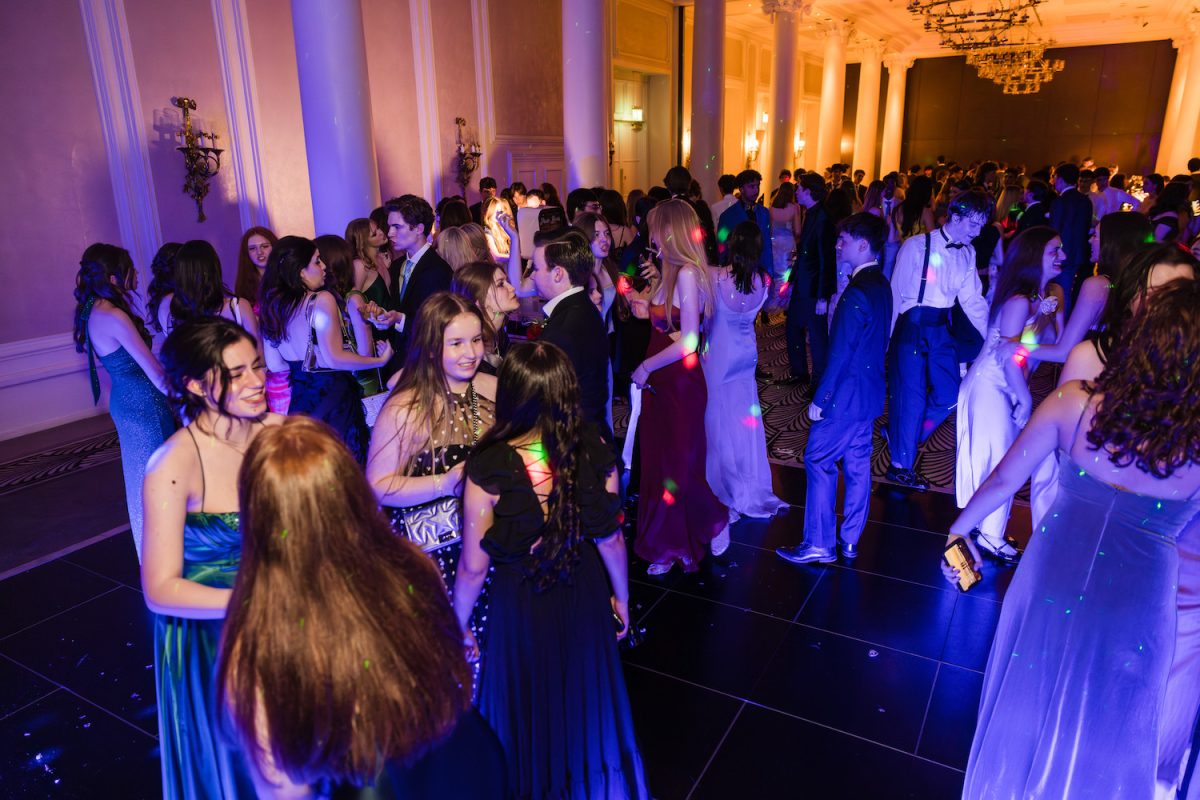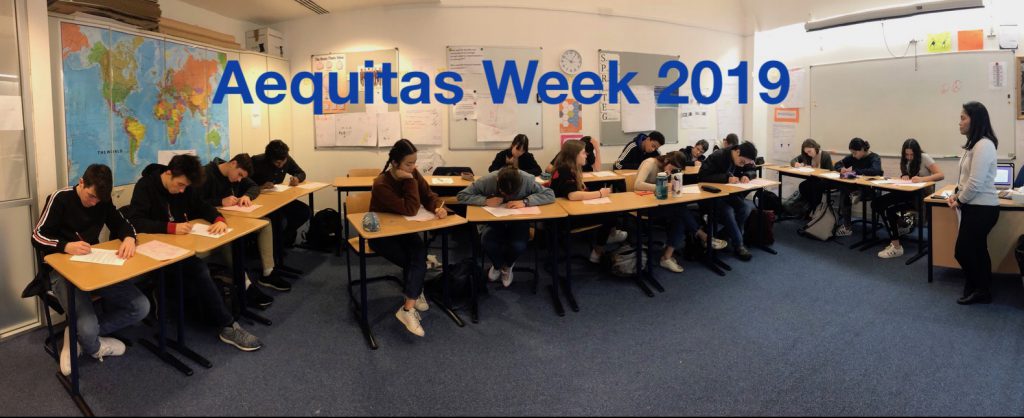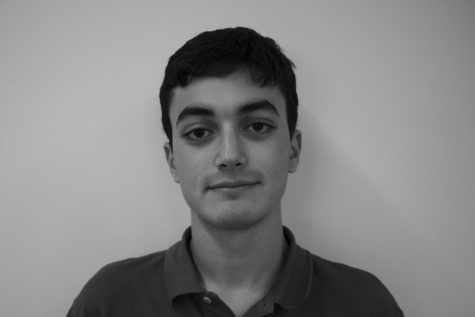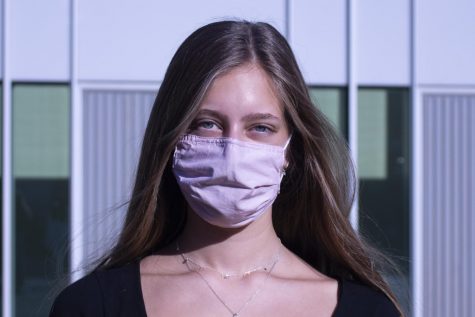The end of January is beginning to be recognized as the marker for the Social Justice Council’s (SJC) annual Aequitas Week, which was established during the 2015-16 school year. Aequitas, which is the Latin origin of the word ‘equity,’ is the overarching theme of the week. Students attend assemblies and participate in a wide range of workshops and discussions, led by students,teachers and outside school speakers, which explore social, cultural and political justice.
This year, each student was assigned to two workshops out of the 31 which took place over Thursday and Friday January 24/25. Workshops covered a wide range of topics, from “10 Things Every White Teacher & Student Should Know When Talking About Race” lead by World Languages and Cultures Teacher Ruth McDonough and Social Studies Teacher Duncan Pringle, to “A View From the Top: Examining London’s Socioeconomic Disparity” lead by Grade 10 Dean Renee Green and Jasmin Taylor (’21).
SJC member Mona Marouf (’21) explained how a committee within SJC was developed for the organization of the week early in the first semester. “Not the entire council deals with the specific things like the room [assignments] and dealing with finding outside of school speakers,” she said. “On the committee, we split the team up so the workload is not on a specific person.”
This year, Marouf was tasked with finding speakers for assemblies and workshops, a process that began in October. With over ten outside of school speakers leading assemblies and workshops throughout the week, Marouf believes that it adds to the special element of the event as opposed to regular classes. “We all brainstormed together who we would want so we thought about alums and previous [speakers],” she said. “It was a struggle to find some, but in the end we were able to find some really good speakers.”
Inua Ellams was one of the guest speakers who spoke in a High School assembly on Tuesday, January 22. Ellams, who is a playwright, poet, and activist, has previously worked with the ASL community through the YoungPower conference which takes place every March and is a one day diversity conference made up of local schools. Ellams touched upon his own story growing up in Ireland, his experience in England and how he has pursued his passion as a playwright over the years.
Alongside hearing from guest speakers, for the first time this year, students were offered the opportunity to lead their own Aequitas workshops, thereby serving as a chance for students to lead discussions on topics they were passionate about. For Max Olsher (’21), who led the workshop “How to be a good LGBTQ+ Ally,” it was a chance to get involved in something that he felt would benefit the community. “[In the workshop,] we went through situations and how to give advice,” he said. “I got involved because I felt like it was needed and it wasn’t necessarily being provided and I thought I could do that.”
Olsher had helped lead a similar Aequitas workshop his freshman year but felt that it was a learning experience for how to make the project more effective this year. Leading a discussion on the issues faced by the LGBTQ+ community, Olsher felt that during his freshman year the workshop team had “not made it for the right audience,” so this year shifted it to “make it more understandable for everyone” in the form of a workshop, which focused on how to be a good ally for members of the LGBTQ+ community, as opposed to just an informative presentation.
English Teacher Christopher Moore, who is new to the school this year, noted how this ability for students “to learn together” through student-led workshops is what makes the week memorable. “I think that this is a really special program, something that students in a lot of schools don’t have the opportunity to experience,” he said.
Echoing Moore’s sentiment, Maya Bajpai (’20) took part in a large scale group project by helping lead the workshop titled “Courage to Act: Decisions about Relationships Before You’re in Them.” Beginning last year after Bajpai and Grade 11 Dean Jennifer Craig had similar ideas for a workshop, they then partnered with Isabel Rosen (’19), Isabella Mattera (’20), College Counselor Ivan Hauck, as well as a few Grade 11 boys to set up and run a discussion-based Aequitas workshop. “I got contact with Mrs. Craig and the two of us started up the idea of wanting to do one, and a few other people were interested in it so they got on board, and then we partnered up with Mr. Hauck because there was a girl’s section and a boy’s section,” Bajpai said.
When organizing the workshop, the freedom to develop their own way of approaching discussion is what made it enjoyable for Bajpai. “I think it was absolutely incredible because our workshop specifically relied a lot on the participants because of how it was a discussion based workshop so I was unsure of how that would go at first,” she said. “But I’m so glad we did it because consent [is] definitely one of those subjects where it’s more awkward than others because it’s not widely talked about, and I think we had really good discussions … it was really interesting to see the different perspectives.”
Similarly, Olsher noted how while at times it was difficult to get conversation started, the answers and ideas tossed out were surprisingly meaningful to him. “I kind of went in having low expectations because my personal experience being a part of the LGBT community has been kind of mixed where people have said or done unintentional homophobic things,” he said. “But I was really impressed by kind of how knowledgeable, respectful and peaceful everyone’s approach was.”
The split of having one workshop on Thursday and one on Friday was a change from previous years, which proved to be beneficial for those running the workshops. Olsher explained how having the two day split let him refine his workshop for the second day. “The first time I tried a kind of popcorn thing like ‘speak if you want to speak’ and no one really spoke, so the second day I kind of was like ‘I’m putting you in groups and you have to tell me what your group was talking about,’ so the second time it went very well,” he said.
Figuring out how to best promote conversation posed a challenge for Bajpai as well, who noticed that not everyone was comfortable talking in the groups. “The hardest part was definitely getting people to talk and share their true opinions because [some] didn’t know each other, it’s a mix of grades, especially talking about something like consent you need to build trust in the room before jumping right in,” she said.
As Aequitas Week came to a close, Moore explained how his first experience of SJC’s event was eye opening. “I was amazed by the scope relevance and thoughtfulness of the workshops offered,” he said. “It showed me the community is dialed into the world.”
Olsher felt similarly, expressing his appreciation for how people were able to come together for a social justice event, even when not everyone is actively engaged in such topics. “People in general, even if they didn’t understand 100 percent, they had the perfect attitude, which is like even if you don’t understand you can at least respect it and it was actually really inspiring,” he said.







